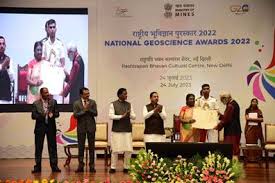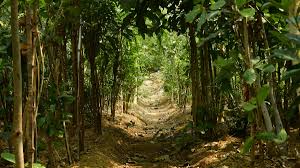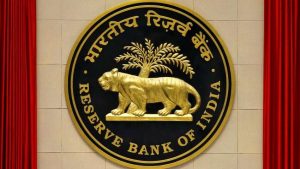Today’s Current Affairs: 21st August 2024 for UPSC IAS exams, State PSC exams, SSC CGL, State SSC, RRB, Railways, Banking Exam & IBPS, etc
Table of Contents
Master Clock System For Railways:

For the first time, Indian Railways is set to develop a master clock system to synchronize time across its entire network, addressing issues with the current manual time-keeping method.
- This initiative arose due to difficulties in investigating rail accidents caused by time mismatches across different systems and applications.
- The existing system involves station masters setting time manually based on instructions from section controllers, leading to discrepancies during accident investigations.
- The new master clock system will source time from reliable sources like NAVIC or the National Physical Laboratory (NPL) and will be integrated across various railway applications and systems.
- This synchronized time system will enhance operational efficiency and improve the accuracy of post-incident analyses.
Court Of Arbitration For Sport:

The Court of Arbitration for Sport (CAS) upheld Vinesh Phogat’s disqualification from the Paris Olympics for exceeding the weight limit by 100 grams.
- Court of Arbitration for Sport was created in 1984 and is placed under the administrative and financial authority of the International Council of Arbitration for Sport (ICAS).
- It is an institution independent of any sports organization which provides for services in order to facilitate the settlement of sports-related disputes through arbitration or mediation by means of procedural rules adapted to the specific needs of the sports world.
- It has the task of resolving legal disputes in the field of sport through arbitration.
- It does this by pronouncing arbitral awards that have the same enforceability as judgements of ordinary courts.
- It can also help parties solve their disputes on an amicable basis through mediation, when this procedure is allowed.
- It sets up non-permanent tribunals, which it does for the Olympic Games, the Commonwealth Games or other similar major events.
- To take into account the circumstances of such events, special procedural rules are established on each occasion.
- Any disputes directly or indirectly linked to sport may be submitted to the CAS.
- These may be disputes of a commercial nature (e.g. a sponsorship contract), or of a disciplinary nature following a decision by a sports organisation (e.g. a doping case).
South American Lungfish : Study

Recent study revealed that the South American lungfish genome grew massively during the past 100 million years.
- South American lungfish is a freshwater species (Lepidosiren paradoxa).
- It is the nearest living relative to the first land vertebrates and closely resembles its primordial ancestors dating back more than 400 million years.
- It is mainInhabiting slow-moving and stagnant waters in Brazil, Argentina, Peru, Colombia, Venezuela, French Guiana and Paraguay.
- It has the largest genome compared to any of the animals on the earth.
- The length of the DNA in each cell of this lungfish would extend almost 60 metres. The human genome would extend a mere 2 metres.
- Its genome is more than 50 times the human genome’s size.
- The world’s four other lungfish species live in Africa, also with large genomes.
- Its genomes are largely composed of repetitive elements – about 90% of the genome.
Lungfish:
- Lungfish first appeared during the Devonian Period.
- It was during the Devonian that one of the most important events in the history of life on the earth occurred when fish possessing lungs and muscular fins evolved into the first tetrapods.
National Geoscience Awards:

The President of India will confer the prestigious National Geoscience Awards – 2023 at the Rashtrapati Bhavan Cultural Centre, New Delhi.
- National Geoscience Awards is one of the oldest and most prestigious national awards in the field of geosciences.
- This award was instituted by the Ministry of Mines, Govt. of India in the year 1966.
- Before the year 2009, these awards were called National Mineral Awards.
- The objective of these Awards is to honour individuals and teams for extraordinary achievements and outstanding contributions in various fields of geosciences i.e. mineral discovery & exploration, Mining Technology & Mineral Beneficiation, fundamental/ applied geosciences.
- Any citizen of India with significant contribution in any field of geosciences is eligible for the award.
- The Ministry of Mines confers National Geoscience Awards every year in three categories:
- National Geoscience Award for Lifetime Achievement
- National Geoscience Award
- National Young Geoscientist Award
- This award is a symbol of recognition and appreciation for exceptional individuals and organizations that have demonstrated excellence, dedication and innovation in the realm of Geosciences.
Miyawaki Method : In News

The Chhattisgarh Forest Department recently organised a Van Mahotsav programme in the Manendragarh-Chirmiri-Bharatpur (MCB) district by planting saplings using the Miyawaki method.
- Miyawaki Method is a method of afforestation developed by the Japanese botanist and plant ecology expert Professor Akira Miyawaki.
- It involves planting two to four types of indigenous trees within every square meter.
- Due to the dense planting, the seedlings grow quickly as they compete for sunlight.
- Only native species that would occur naturally in that area without humans, given the specific climate condition, are planted.
- The selection of species to plant in a given area was originally linked to the theory of potential natural vegetation (PNV), in other words, the vegetation that would occur in a specific area without further human interference.
- In this method, the trees become self-sustainable and grow to their full length within three years.
- Miyawaki forests grow 10x faster, are 30x denser and contain 100x more biodiversity.
- They are quick to establish, maintenance-free after the first two-to-three years, and can be created on sites as small as 3 sq. m.
- The goals of a Miyawaki technique include improving biodiversity, sequestering carbon, increasing green cover, lowering air pollution, and preserving the water table.
Parvovirus B19 : Concern

The US Centers for Disease Control and Prevention (CDC) recently issued a health advisory due to concerns about the rise in cases of parvovirus B19.
- Parvovirus B19 is a highly contagious and common illness, particularly in those with weakened immune systems.
- It is commonly known as the “slapped cheek” illness due to the characteristic reddening of the cheeks it causes.
- Parvovirus infection has also been known as ‘Fifth disease’ because, historically, it was fifth in a list of common childhood illnesses characterized by a rash.
- The virus can be spread through airborne droplets when an infected person coughs or sneezes.
- It may also spread through blood or contaminated blood products.
- Pregnant people with parvovirus can spread the virus to the fetus through the placenta.
- In most children, parvovirus infection is mild and needs little treatment.
- But in some adults, the infection can be serious. Parvovirus infection in some pregnant women can lead to serious health problems for the fetus.
- The infection is also more serious for people with some kinds of anemia or who have a compromised immune system.
- Most people with parvovirus infection have no signs or symptoms.
- When symptoms do appear, they vary greatly depending on how old you are when you get the disease.
Self-Regulatory Organisations : RBI

The Reserve Bank of India recently issued a framework to recognise self-regulatory organisations in the financial markets.
- Self-Regulatory Organizations (SROs) is generally a non-governmental entity created by members of a particular industry or sector to help govern the companies in that industry.
- An SRO sets and enforces rules and standards relating to the conduct of entities in the industry (members) with the aim of protecting the customer and promoting ethics, equality, and professionalism.
- SROs typically collaborate with all stakeholders in framing rules and regulations.
- Their self-regulatory processes are administered through impartial mechanisms such that members operate in a disciplined environment and accept penal actions by the SRO.
- An SRO is expected to address concerns beyond the narrow self-interests of the industry, such as to protect workers, customers, or other participants in the ecosystem.
- Although SROs are private organizations, they are still subject to government-imposed regulation to a degree. However, the government does delegate some aspects of the industry oversight to SROs.
- Since the SRO has some regulatory influence over an industry or profession, it can often serve as a watchdog to guard against fraud or unprofessional practices.
- The ability of an SRO to exercise regulatory authority does not stem from a grant of power from the government.
Death Of Leonard Hayflick: Related Study

Biomedical researcher Leonard Hayflick, who discovered that normal somatic cells can divide (and thus reproduce) only a certain number of times, died recently.
- Hayflick limit refers to the maximum number of times a cell can divide.
- It’s named after scientist Leonard Hayflick, who discovered this phenomenon.
- The limit plays a crucial role in aging and the development of age-related diseases.
- Hayflick found that cells go through three phases.
- The first is rapid, healthy cell division.
- In the second phase, mitosis slows. In the third stage, senescence, cells stop dividing entirely.
- They remain alive for a time after they stop dividing, but sometime after cellular division ends, cells do a particularly disturbing thing: Essentially, they commit suicide.
- Once a cell reaches the end of its life span, it undergoes a programmed cellular death called apoptosis.
- Hayflick’s discovery got further weight after researchers in the 1970s discovered Telomeres.
- Telomeres are repetitive DNA sequences at the very end of these strands, meant to protect the chromosome.
- Crucially, with each cell division, these telomeres get slightly shorter. Eventually, the telomere loss reaches a critical point at which cell division ends.
- That said, while shortening telomeres is related to aging, the exact relationship between telomere length and lifespan remains unclear.
Airtel Payments Bank Enhances Security with AI-Powered Face Match:
Airtel Payments Bank has introduced a new security feature called Face Match, leveraging AI to enhance account protection. This advanced tool uses machine learning algorithms to detect potential threats and prompts facial recognition verification when needed.
Sinner and Sabalenka Claim Cincinnati Open Titles:
Top-ranked Jannik Sinner and women’s No. 2 Aryna Sabalenka each secured their first Cincinnati Open titles with straight-set victories. Sabalenka defeated Jessica Pegula 6-3, 7-5, while Sinner overcame Frances Tiafoe 7-6 (4), 6-2.
SpaceX’s Polaris Dawn Mission: The First Private Spacewalk:
SpaceX’s upcoming Polaris Dawn mission is set to make history as the first private spacewalk. Scheduled for launch on August 26, 2024, at 3:38 a.m. EDT (0738 GMT), this five-day expedition will be led by American billionaire Jared Isaacman, who previously chartered the Inspiration4 mission in 2021
Relocation Of The Women’s T20 World Cup 2024:
The ICC has announced the relocation of the Women’s T20 World Cup 2024 from Bangladesh to the United Arab Emirates (UAE) due to significant safety concerns. The event, originally set to be hosted in Bangladesh, will now take place from October 3 to 20 in Dubai and Sharjah.
M Suresh Appointed as Interim Chairman of Airports Authority of India:
M Suresh has been appointed as the interim Chairman of the Airports Authority of India (AAI). This appointment, effective Tuesday, marks a crucial transition in the leadership of one of India’s most important aviation bodies.
RBI Governor Shaktikanta Das Ranked Top Central Banker for 2nd Year:
Reserve Bank of India (RBI) Governor Shaktikanta Das has been recognized as the top central banker globally for the second straight year by the US-based Global Finance magazine. He was awarded an ‘A+’ grade in the prestigious Global Finance Central Banker Report Cards 2024.
NHDP and RMS Scheme:
The Government has undertaken various measures for promoting the handloom sector in the country. To provide end to end support for promotion of handloom sector and welfare of handloom workers, Ministry of Textiles is implementing the National Handloom Development Programme and Raw Material Supply Scheme across the country.
ICICI Bank Received Approval To Raise Its Stake:
ICICI Bank received approval from the Reserve Bank of India (RBI)to raise its stake in ICICI Lombard General Insurance Company by up to 4% in multiple tranches. The private lender currently holds a 48.01% share in ICICI Lombard.




